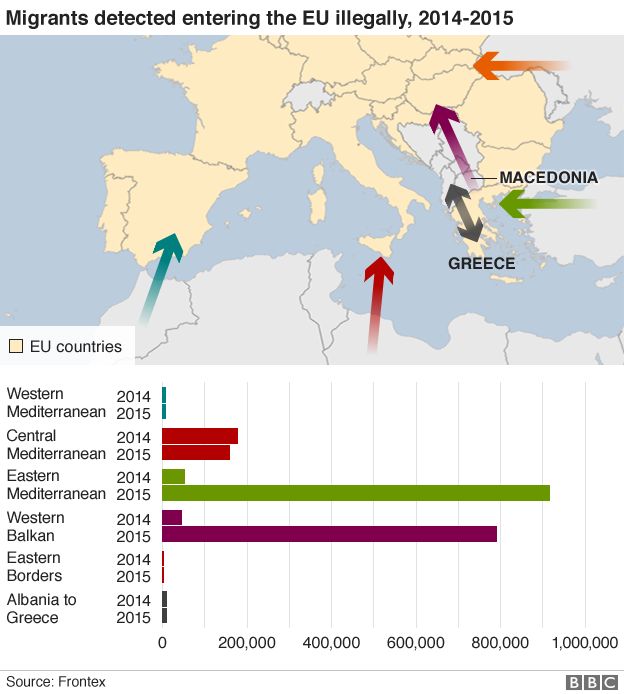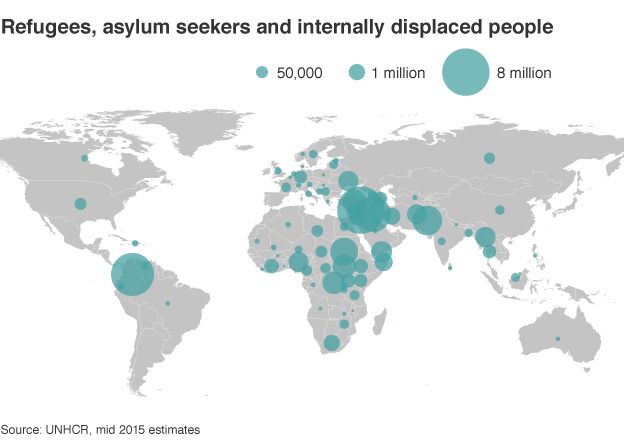There has been a constant recent argument that if you are a conservative and don’t vote Trump then you are effectively voting for Hillary. That is a straw man argument when the matter is twofold.
Newt Gingrich argued with Congressman Huelskamp over the weekend and admitted Trump is not a ‘Reagan conservative’ but he is better than Hillary. Of course that statement is true. The other matter is why are the Trump fans so fearful that Hillary will get the nomination? Of course she will. Are Republicans so terrified that Hillary cannot be defeated in the general election? If so, then where is the mettle and fire in the belly and force multiplier and a voting army defeat Hillary? If the will is there, the achievement can be so great such that no Democrat will successfully take over the Oval Office for perhaps up to 3 election cycles and it should that way given the last 8 years.
In case this argument needs more ammunition, here are some more political arrows for the quiver relating to the elitist circle of the Clintons. This demonstrates the alternate universe of collusion, money and favors.
Among them are Gabrielle Fialkoff, finance director for Hillary Clinton’s first campaign for the U.S. Senate; Frank Giustra, a Canadian mining magnate who has traveled the globe with Bill Clinton; the Chagoury family, which pledged $1 billion in projects to the Clinton Global Initiative; and Chinese billionaire Ng Lap Seng, who was at the center of a Democratic fund-raising scandal when Bill Clinton was president. Also using the Panamanian law firm was the company founded by the late billionaire investor Marc Rich, an international fugitive when Bill Clinton pardoned him in the final hours of his presidency.
The ties are both recent and decades old, not surprising
for the Democratic presidential front-runner and her husband, who have been in public life since the 1970s.
Each is listed in the massive leak of data from Mossack Fonseca, a law firm with expertise in registering offshore companies, which can have legitimate business purposes, but can also be used to evade taxes and launder money. Several heads of state were found in the leak, leading to the departure of the leader of Iceland and investigations in several other countries.
McClatchy Newspapers and about 350 other journalists working under the umbrella of the International Consortium of Investigative Journalists have searched an archive containing more than 11.5 million Mossack Fonseca documents, including passports, financial records and emails. After a series of articles earlier this month revealed how business owners and politicians used offshores, authorities raided the law firm’s offices in Panama. The law firm has denied all accusations of wrongdoing.
Hillary Clinton condemned what she called “outrageous tax havens and loopholes that super-rich people across the world are exploiting.”
“Now, some of this behavior is clearly against the law, and everyone who violates the law anywhere should be held accountable,” she said, speaking at the AFL-CIO convention recently. “But it’s also scandalous how much is actually legal.”
The Clintons themselves do not appear to be in Mossack Fonseca’s database, nor does it appear that their daughter, Chelsea, or her husband, Marc Mezvinsky, who co-founded a hedge fund, are listed. But Bill and Hillary Clinton’s connections to people who have used offshores is fuel for her Democratic rival, Bernie Sanders.
Clinton has struggled throughout her campaign to show that she can relate to working Americans, while Sanders has cast her as a wealthy out-of-touch Washington insider who has accepted hefty paychecks for speeches and received millions of dollars in campaign contributions from those tied to big businesses. Her connection to the Panama Papers, even if indirect, could magnify that perception.
Lee Miringoff, director of the Marist Institute for Public Opinion in New York, said it would draw voters’ attention once again to Clinton’s ties to big money. “It certainly would play into Sanders’ narrative,” he said.
Sanders said Clinton’s support of a free-trade agreement between the U.S. and Panama – one that he claims has allowed the wealthy to avoid paying taxes – should disqualify her from being the Democratic nominee for president.
“I don’t think you are qualified if you supported the Panama free trade agreement, something I very strongly opposed, which has made it easier for wealthy people and corporations all over the world to avoid paying taxes owed to their countries,” Sanders said recently.
To be sure, a long life in politics has allowed the Clintons to accumulate relationships to wealthy people and businesses across the globe.
One such connection is to Jean-Raymond Boulle, a one-time diamond miner from the volcanic island nation of Mauritius whose company was once based in Bill Clinton’s hometown of Hope, Ark. In the mid 1990s, Boulle was listed as a director of Auk Limited, a British Virgin Islands offshore company, and Gridco Limited, a Bahamas offshore company.
After two meetings with Boulle, Bill Clinton, then-governor of Arkansas, signed legislation allowing his company to engage in exploratory mining in the state. Later, Boulle and his wife attended Clinton’s first inauguration. Boulle’s company did not respond to a message.
“Obviously there’s no wrongdoing – it’s a question of perception and values,” said Meredith McGehee, policy director at the Campaign Legal Center, a nonpartisan, nonprofit organization. “They’ve been in public life so long; when you enter that sphere you have these connections.”
Clinton campaign spokesman Brian Fallon declined to answer specific questions about her connections but referred to Clinton’s earlier comments that criticized the behavior last week. Bill Clinton’s office and the Clinton Foundation declined to comment.
Also among the Clinton connections is Fialkoff, now a senior adviser to New York Mayor Bill de Blasio and director of the city’s Office of Strategic Partnerships. She, her brother, Brett, and her late father, Frank, are listed as shareholders of UPAC Holdings Ltd, a British Virgin Islands offshore company incorporated in June 2012.
Gabrielle Fialkoff said in an email that she has “no knowledge” of the company and referred questions to her brother.
Brett Fialkoff, who serves as chief operating officer at his family’s business, Haskell Jewels, a New York-based designer, marketer and distributor of costume jewelry, initially told McClatchy he didn’t know why his family would be in the documents. Later, he said that someone must have opened an account in their names.
Still, later, he said he set up an offshore company to export accessories from China to the United States. The documents indicate the company’s files are registered in Beijing.
But, he said, he abandoned the new business to give more attention to his family’s jewelry company. He said there’s no money in any bank account overseas and declined to provide details about his compliance with U.S. tax laws.
“I have news for you: There is no money,” he said in a phone interview. “We’re not like Vladimir Putin, trying to hide money.”
The most recent Mossack Fonseca information of December 2015 shows the company remains active, registered on behalf of the Fialkoffs in the British Virgin Islands by a Hong Kong-based consulting company on June 6, 2012. Brett Failkoff acknowledged the company is still “legally alive” but said it does not – nor has it ever – conducted any business.
Gabrielle Fialkoff, a longtime friend of de Blasio, was finance director for Clinton’s 2000 Senate campaign, which de Blasio managed. After serving as Haskell’s president and chief operating officer, she chaired de Blasio’s inauguration and led New York’s unsuccessful bid to host the Democratic National Convention in 2016.
She has been a regular donor to Democratic candidates, including Clinton, according to the Center for Responsive Politics, which tracks money in politics. She also donated between $250 and $1,000 to the Clinton Foundation. Her father donated to Clinton as well. Her brother contributed money to Republicans, including presidential candidates Ben Carson and Rand Paul.
Another connection is Giustra, the director of UrAsia Energy Ltd, a British Virgin Islands offshore company registered in May 2005.
The company wanted to “conduct uranium exploration, development, production and marketing operations and related activities in Kazakhstan and Kyrgyzstan,” according to a draft of the shareholders’ agreement.
UrAsia, based in British Columbia, Canada, finalized a deal in September 2005 to buy uranium mines for $500 million in Kazakhstan, according to published reports.
The deal came after Giustra joined Bill Clinton in Kazakhstan for the launch of a Clinton Foundation health initiative and dined with him and Kazakhstan’s president, among others. The timing prompted questions about whether Bill Clinton played any role in the agreement. Giustra denied that, saying it came after months of negotiations.
The following year, Giustra, who is also involved in filmmaking and founded Lionsgate Entertainment, made a donation of more than $30 million to the Clinton Foundation, according to published reports.
In total, Giustra has committed $100 million to the foundation, according to at least one report, though foundation records don’t give an exact amount, saying only that he is one of the largest individual donors giving more than $25 million. In 2007, he started an affiliated charity that bears his name and initially kept its donors secret despite a 2008 agreement between the Clintons and the Obama administration to make public foundation contributors.
Bill Clinton has flown around the globe on Giustra’s plane, sometimes with him, including to Kazakhstan.
Giustra’s attorney David S. Brown wrote in a letter to McClatchy that his client “had no dealing with the law firm of Mossack Fonseca.”
He also said the use of a company such as UrAsia Energy Ltd. is common in international mining transactions and was used at the direction of an international accounting firm.
“Far from being secretive, opaque or clandestine, UrAsia Energy Ltd. BVI was fully disclosed to the public and to the applicable regulators in 2005 _ to be clear, there was absolutely nothing untoward in the use of this entity,” he wrote.
He declined to answer additional questions.
Former fugitive billionaire Marc Rich’s name doesn’t appear in the Panama Papers, but his company does. The Bahamas offshore Industrial Petroleum Limited was registered in 1992, established by the commodities firm Glencore International in Switzerland, inactivated in 2001.
The allegations against Rich, who died in 2013, ranged from tax evasion to trading with Iran despite bans to selling oil to South Africa’s apartheid government. He fled to Switzerland in 1983, but before the pardon, his ex-wife Denise made a $450,000 donation to Clinton’s presidential library in Little Rock.
Rich’s business partners appear in the data too. And they also give generously to the Clinton Foundation.
Sergei Kurzin, a Russian engineer and investor, appears in a draft shareholders agreement in partnership with Giustra in the British Virgin Islands offshore UrAsia Energy Ltd. Kurzin worked closely with Rich in the 1990s looking for opportunities in the former Soviet Union when it was opened to mining and oil investment.
Kurzin, who has given the Clinton Foundation between $50,000 and $100,000, appears in the Panama Papers as the director and chairman of various oil companies. Kurzin was also a partner in the uranium deal involving Giustra.
In a 2009 interview with Forbes, the British-Russian dual citizen boasted of giving generously to a Clinton-Giustra initiative, noting: “I wrote a check for a million dollars. I don’t think you can call it a small amount.”
Messages left for Kurzin were not returned this weekend.
Also in the Panama Papers is Ronald Chagoury, who along with brother Gilbert leads the Chagoury Group, a Nigerian family-run construction business. The brothers were associated with Nigerian dictator Sani Abacha, who died in 1998, and did business with Glencore and Rich, according to news reports.
Ronald Chagoury appears in the Panama Papers as the main shareholder of Echo Art Ltd. in the British Virgin Islands.
In 2009, the Chagoury Group pledged $1 billion in coastal erosion projects to the Clinton Global Initiative, an offshoot of the foundation, according to the initiative’s website.
The Chagoury Group is building Eko Atlantic, a peninsula city adjacent to Lagos that will be reclaimed from the Atlantic Ocean. The company’s website cites the Clinton Global Initiative’s praise for it as an “environmentally conscious city” under construction.
Gilbert Chagoury’s ties to the Clintons stretch back years. He has given to Bill and Hillary Clinton’s campaigns and has donated between $1 million to $5 million to Clinton Foundation, foundation records show. In 2003 he organized a trip to the Caribbean where Bill Clinton was paid $100,000 for a speech.
Messages left for the Chagourys were not returned this weekend.
Another businessman in the Panama papers, Ng, is listed as a shareholder of two British Virgin Islands companies – South South News International Group Ltd in May 2010 and GOLUCK Ltd. in 2004.
He leads a real estate development company in Macau, China, and is one of the world’s wealthiest people. He was accused in 1996 of sending more than $1.1 million to a Little Rock restaurant owner who then contributed hundreds of thousands of dollars to the Democratic National Committee, according to a 1998 Senate committee investigation.
The restaurant owner, Charlie Trie, pleaded guilty to violating campaign finance laws. Ng was not charged. Another congressional report criticized Ng and others for failing to cooperate during the investigation.
Published reports say Ng visited the White House 10 times from 1994 to 1996, had his photograph taken with Bill and Hillary Clinton, sat beside Bill Clinton at an event at a Washington hotel, and rode in an elevator with Hillary Clinton.
Last year, Ng was charged with bribing a United Nations official and lying about what he was doing with $4.5 million in cash he brought into the U.S. over two years. Investigators say instead of spending it at casinos or on art, antiques or real estate, he used the money for bribes as he sought investments in Antigua and China. Another man listed in the same criminal complaint is president of the New York-based South South News, the same name of the British Virgin Islands company.
Ng’s lawyer, Kevin Tung, has said that his charges are based on a misunderstanding. Tung, Benjamin Brafman and Hugh Mo, two others who are or have represented Ng, did not respond to requests for comment.
In 2011, Sanders predicted in a Senate speech that the Panama trade deal would make it easier for the wealthy to hide their cash in Panama.
“I wish I had been proven wrong about this, but it has now come to light that the extent of Panama’s tax avoidance scams is even worse than I had feared,” he said in a statement earlier this month.
Hillary Clinton had opposed the deal in 2008 when she was running for president. But later, as secretary of state, she helped push the agreement through Congress. Her supporters, however, say that the trade pact did not open the door to additional tax evasion.
A Democrat-controlled Senate approved the trade deal. In October 2012, then-Senate Finance Committee Chairman Max Baucus, D-Mont., lauded the deal’s “strong language to crack down on tax evasion and money-laundering in Panama.”
Both Clinton and Sanders have vowed to go after Americans who try to hide their wealth.
Clinton said she would shut down what she called the private tax system for the wealthy while Sanders has said he would end the trade deal with Panama within six months and investigate U.S. banks, corporations and individuals stashing their cash in Panama to avoid taxes.
“We’re going after all these scams and make sure that everyone pays their fair share here in America,” she said. “I’m going to hold them accountable, and we’re going to have a special effort to track all these resources wherever they might lead.”
McClatchy has much more here and it is worth the long read to understand more not only on the Clintons but of the elites around the world that our own elites entertained, manipulated, approved of and how some laws and sanctions were waived.




